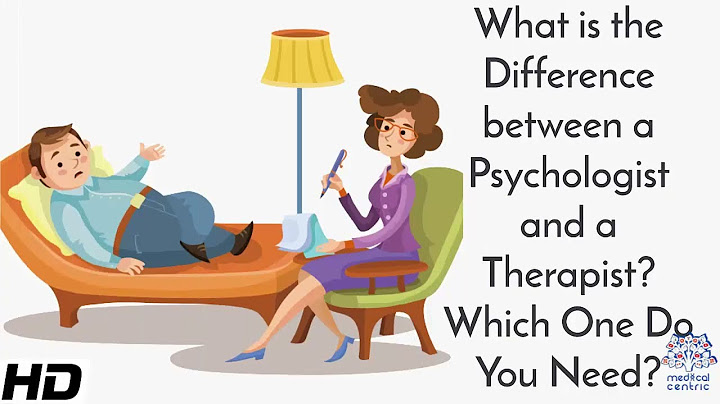Are you thinking about a career in speech-language pathology (SLP), but still not sure if it’s the right career for you? No doubt you have many unanswered questions that are cause for hesitation. Show
Should I become a speech pathologist or another type of therapy professional, such as an audiologist? What steps do I have to take to become an SLP? Does this career fit my skills and personality? Speech therapy jobs are abundant, and they offer the chance to work in clinical, educational, and administrative settings. If you’re curious about the pros and cons of an SLP career, here are some answers to help you figure out whether becoming a speech pathologist is right for you. Is Speech-Language Pathology the Right Career For You?A speech-language pathologist is a clinical therapist who specializes in assessing, diagnosing, and treating disorders that affect linguistic behavior, communication, or swallowing. They develop preventive therapies to treat language impairments in early childhood and corrective techniques to improve communication problems related to physical, social, or cognitive health. Keep the following factors in mind as you weigh the benefits and challenges of being an SLP. 1. What are your salary requirements?While salary isn’t the only factor in choosing a career, it’s important when considering the cost of your education and long-term earning potential. The good news is SLPs earn a very competitive salary. In 2020, the median pay for speech-language pathologists was $80,480. On top of that, according to the Bureau of Labor Statistics (BLS) the job demand is estimated to increase 29 percent from 2020 to 2030. The highest-paid speech therapists—who typically work for nursing and residential care facilities—earn anywhere from $95,000 to more than $122,000 a year. The educational services industry, which employs 38 percent of SLPs, reportedly offers a median annual wage of $71,410. If salary is a top priority, rest assured that working as an SLP can help you meet your financial goals. 2. Do you enjoy working with people?A career as an SLP will involve working intimately with people from diverse backgrounds. Plus, depending on your work environment, you may have clients of all ages as well. Consider whether you’ll be comfortable in a hands-on role that requires a great deal of one-on-one interaction. Speech therapists need to possess these key traits:
Since speech therapists mainly treat developmental disorders, they must also be excited to work with children. These professionals diagnose problems that typically manifest in early childhood, such as difficulty forming sounds, organizing thoughts, coordinating speech motor functions, and understanding verbal and nonverbal cues. No matter what setting you work in, compassion and interpersonal skills are necessary to succeed. Many clients will have multiple obstacles affecting their ability to communicate, and it’s the role of a speech therapist to assess their individual needs and develop effective treatment plans. If you prefer not to work closely with others, a related research field might be a better fit. Published Date April 20, 2022 Speech-language pathology is a foundational area of study within the field of communication sciences and disorders (CSD). As a speech-language pathologist, you will be part of a growing number of professionals that focus on the prevention, assessment, diagnosis, and treatment of speech, language, social communication, cognitive-communication, and swallowing disorders in a variety of different patient populations– from young children with speech challenges to elderly stroke victims. Featured Programs:
Speech-language pathologists are master’s-educated, state licensed, and often nationally certified through the American Speech-Language-Hearing Association. Although licensing requirements vary slightly from one state to the next, all licensing boards require SLP professional candidates to complete pre-licensure professional experience requirements and hold a post-bachelor’s degree in speech-language pathology. Steps to Becoming a Speech-Language PathologistHere’s what’s involved in meeting the education, experience and examination requirements to become a speech-language pathologist:
Step 1. Complete an Undergraduate Program in Communication Sciences and Disorders (CSD)According to the American Speech-Language-Hearing Association (ASHA), there are more than 200 institutions offering undergraduate degrees (Bachelor of Arts, Bachelor of Science) in Communication Sciences and Disorders (CSD). A bachelor’s degree in CSD ensures a seamless transition to a CSD master’s program. Although an undergraduate degree in CSD is not mandatory for entering a CSD graduate program, it may eliminate the need to take certain prerequisites before beginning graduate studies. CSD undergraduate degree programs include foundational courses in statistics and the social/behavioral, physical and biological sciences, as well as courses related to:
Many undergraduate programs in CSD offer research experiences and many require students to participate in research activities designed to provide students with the skills required for future research and clinical practice. Step 2. Complete a CAA-Accredited Graduate Degree Program in Speech-Language Pathology/Communicative Sciences and DisordersTo become a speech-language pathologist, you must complete a minimum of an entry-level graduate degree (MA, MS, MEd) from a program accredited by the Council on Academic Accreditation in Audiology and Speech-Language Pathology (CAA). Program titles may include:
Many CAA graduate programs offer:
Speech pathology graduate programs consist of about 48 credits and are located in colleges/departments of education, audiology, healthcare sciences, public health, behavioral and communication sciences, and rehabilitation, to name a few. They include both academic and clinical coursework, and many students also supplement their program with research-related activities. A number of CAA-accredited programs offer study abroad opportunities. Clinical Practicum Requirements All CAA-accredited speech-language programs include supervised clinical experiences, designed to provide students with opportunities to become acquainted with the speech-language pathology profession and apply their newly acquired knowledge. Clinical practicum requirements for licensure vary slightly depending on the state. For example, Illinois and Pennsylvania require a clinical practicum of at least 375 hours, while in Texas the clinical practicum requirement is 400 hours, and in Florida it is just 300. Some states, like Arizona and Washington State, have no specific clinical practicum requirements, instead deferring to ASHA requirements, which stipulate 350 hours. Clinical placement advisors work with students to arrange clinical experiences in at least three settings and with a number of populations. Before commencing their clinical practicum, students of online SLP master’s degree programs would attend a number of on-campus clinical immersion experiences where they would get to engage in practicum seminars with faculty and fellow students. Prerequisites and Admission Requirements Admission requirements and processes may differ slightly from one graduate program to the next, but all require incoming students to complete foundational undergraduate coursework that supports studying speech-language pathology at the graduate level. Some programs allow new students who hold an undergraduate degree in an area other than communicative science and disorders to enter the program and then complete outstanding prerequisites prior to moving on to graduate-level courses. Other programs only admit students after they have successfully completed all prerequisite coursework. Some colleges and universities even offer prerequisite courses online, allowing students to complete all necessary courses before starting their graduate program. Earning an undergraduate degree in communicative sciences and disorders would usually satisfy all undergraduate requirements. Prerequisite undergraduate courses generally include:
Other admission requirements include:
Step 3. Complete a Post-Graduate FellowshipYou would begin your post-graduate fellowship after the successful completion of your CAA-accredited graduate program. Before beginning your clinical fellowship in speech language pathology, you may need to apply for a temporary license (also called an intern or limited license) through your state’s board of speech-language pathology and audiology. To qualify for a temporary license, you must possess a master’s or doctoral degree from a CAA-accredited program and submit a plan for your clinical fellowship, signed by a licensed supervisor. Temporary licenses are usually valid for a year, just long enough to complete your clinical fellowship. Practical training through a speech-language pathology clinical fellowship is necessary for state licensure. Speech-language pathology clinical fellowships consist of a period of training completed under the guidance and supervision of a licensed speech-language professional. Clinical fellowship requirements vary from one state to the next, although most states require fellowships to last 36 weeks (1,260 hours). Many states mirror the clinical fellowship requirements that must be met to earn the Certificate of Clinical Competence (CCC-SLP) credential through the American Speech-Language-Hearing Association, which requires a clinical fellowship to:
Step 4. Take a National Exam in Speech-Language PathologyYou must take and pass the Educational Testing Service’s (ETS) Praxis II: Subject Assessment in Speech-Language Pathology to earn state licensure. Generally, you may take this examination at any time following the successful completion of your CAA-accredited graduate program. Most students take the Praxis at some point during their clinical fellowship. You must register directly with ETS for the Praxis II: Subject Assessment in Speech-Language Pathology. The registration process allows you to choose the exam location and date that best meets your needs. There are test centers located throughout the country. You can learn more about available test centers near you here. Each state has their own passing score requirements for the Praxis exam, although most follow the CCC-SLP certification minimum requirements for a score of 162. The exam consists of the following topics:
You can learn more about the Praxis exam by studying the Speech-Language Pathology Study Companion. Step 5. Apply for State Licensure as a Speech-Language PathologistTo apply for state licensure, you must complete an application and submit it to the licensing authority, along with:
Depending on the state, you may also be required to complete a course on HIV/AIDS and take and pass a state jurisprudence examination. Continuing Education Requirements To maintain state licensure as a speech-language pathologist, you must complete the necessary number of continuing education requirements during your renewal period. Continuing education requirements vary. For example, in Tennessee, speech-language pathologists must complete at least 10 hours of continuing education per calendar year, while in California, speech-language pathologists must complete at least 24 clock hours of continuing education during every two-year renewal period. Step 6. Consider Professional CertificationThe American Speech-Language-Hearing Association’s (AHSA) Speech-Language Pathology Certificate of Clinical Competence (CCC-SLP) is a nationally recognized, voluntary designation that increases opportunities for:
To qualify for CCC-SLP certification, you must:
You may submit an application for CCC-SLP after you have completed your graduate degree from a CAA-accredited academic program. You must complete and submit the Application for the Certificate of Clinical Competence in Speech-Language Pathology (CCC-SLP)-2014 Standards, along with the $461 fee for membership and certification. To complete the application for certification, you must also submit:
To maintain your CCC-SLP credential, you must complete 30 professional development hours during every three-year certification period, which begins January 1 of the year following your initial certification. Featured Programs:
Back to Top Is becoming a speech pathologist hard?It takes a lot of dedication to become an SLP. At least 6 years of education, plus a clinical fellowship year, plus passing your boards. The good thing is, once it's over, it's OVER and you never have to go back!
What are the requirements to be a speech pathologist?Master's degreeSpeech and Language Therapist / Entry level educationnull
What is the difference between a speech pathologist and a speech therapist?What's the difference between a speech pathologist and a speech therapist? Actually, there isn't one. Speech-language pathology is the official profession of an individual who is commonly known as a speech therapist or a speech teacher.
|

Related Posts
Advertising
LATEST NEWS
Advertising
Populer
Advertising
About

Copyright © 2024 nguoilontuoi Inc.



















